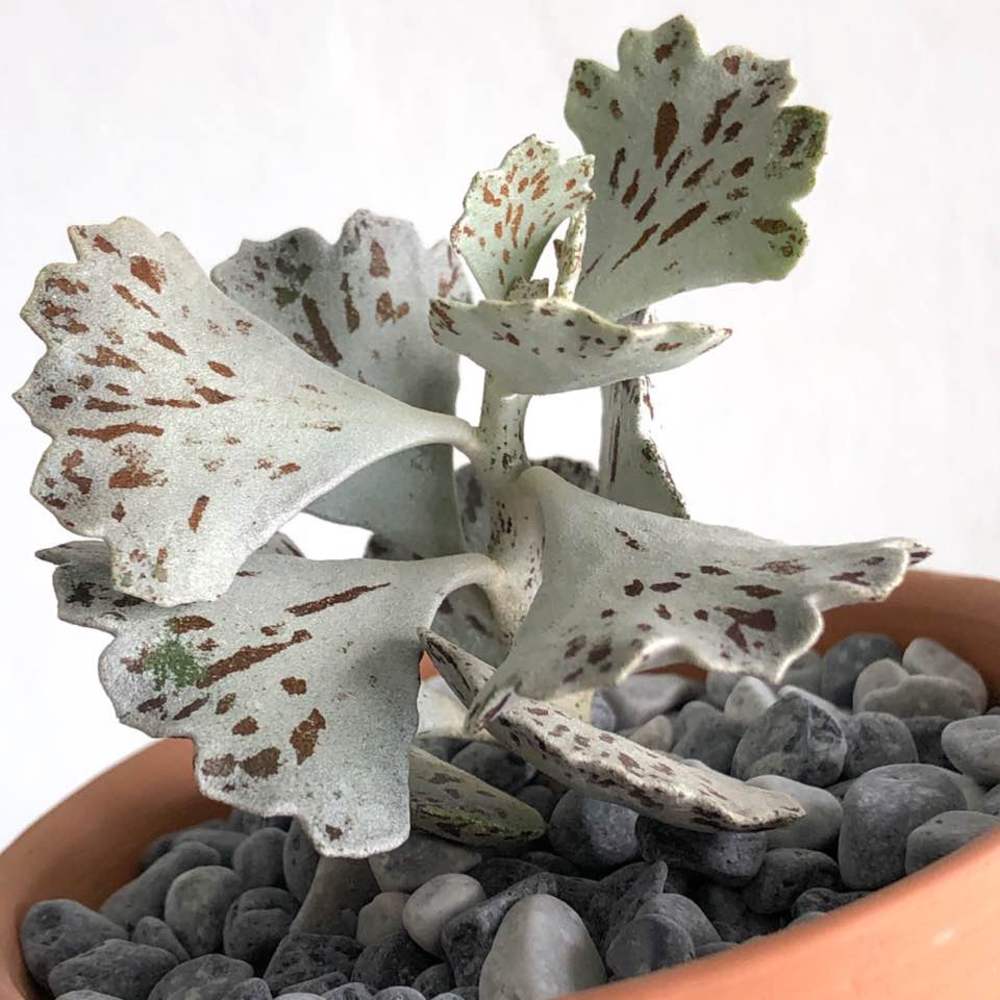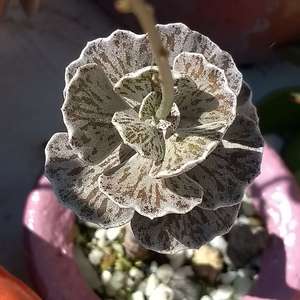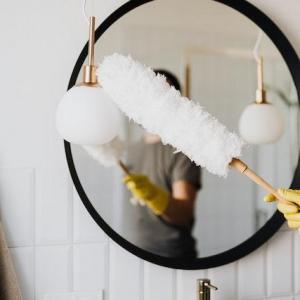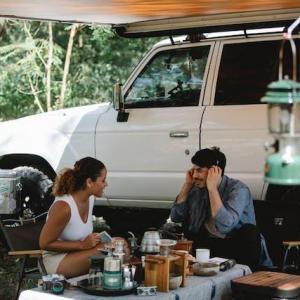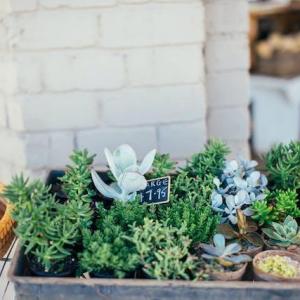Plant Experience
Detail
Kalanchoe rhombopilosa is a few branched, perennial, succulent shrublet up to 12 inches (30 cm) tall with small, up to 1.2 inches (3 cm) long, slightly woolly, silver-green leaves with brown markings on sprawling, woody branches. The stems are thin, up to 0.3 inch (8 mm) in diameter, rigid, woody, upright or sprawling with long hairs. The cruciform flowers are small and greenish yellow to pink with purple lines.
How to Grow and Care
Kalanchoes are not particularly hard to grow, and the flowering varieties are highly rewarding for their colorful and long-lasting flowers. Many people discard the plants after the bloom is over, but this isn’t really necessary. Simply cut off the flowering head, let the plant rest with reduced water, and resume its normal care. It should flower naturally in spring. Professional growers force Kalanchoes to bloom throughout the year (they are a short-day plant).
The two pendant Kalanchoes make excellent hanging plants. They prefer bright, sunny locations, especially in the summer growing season. During the winter, consider a south-facing window. Water moderately throughout the summer and reduce watering in the winter. Let the soil surface dry out between waterings, and in the winter, the plant can almost dry out. Watch the fleshy leaves for signs of water distress. They prefer warmth. Do not let fall below 55ºF (12.7ºC). Feed bi-weekly in the summer with a liquid fertilizer, or use slow-release pellets.
How to Grow and Care
Kalanchoes are not particularly hard to grow, and the flowering varieties are highly rewarding for their colorful and long-lasting flowers. Many people discard the plants after the bloom is over, but this isn’t really necessary. Simply cut off the flowering head, let the plant rest with reduced water, and resume its normal care. It should flower naturally in spring. Professional growers force Kalanchoes to bloom throughout the year (they are a short-day plant).
The two pendant Kalanchoes make excellent hanging plants. They prefer bright, sunny locations, especially in the summer growing season. During the winter, consider a south-facing window. Water moderately throughout the summer and reduce watering in the winter. Let the soil surface dry out between waterings, and in the winter, the plant can almost dry out. Watch the fleshy leaves for signs of water distress. They prefer warmth. Do not let fall below 55ºF (12.7ºC). Feed bi-weekly in the summer with a liquid fertilizer, or use slow-release pellets.
Album (3)
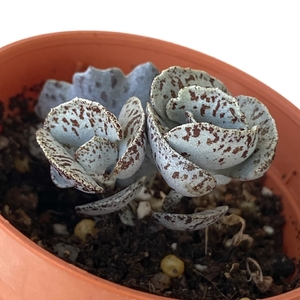
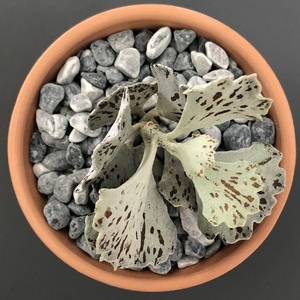
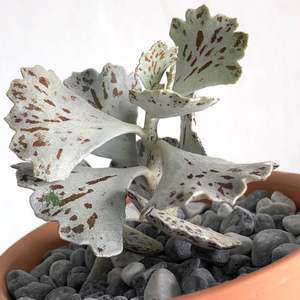
kensong
2020-07-15

Propagated from leaves.


kensong
2018-10-24

This is my first growing diary. From Hee Garden RM10.00.




Related Users
Elite Article


